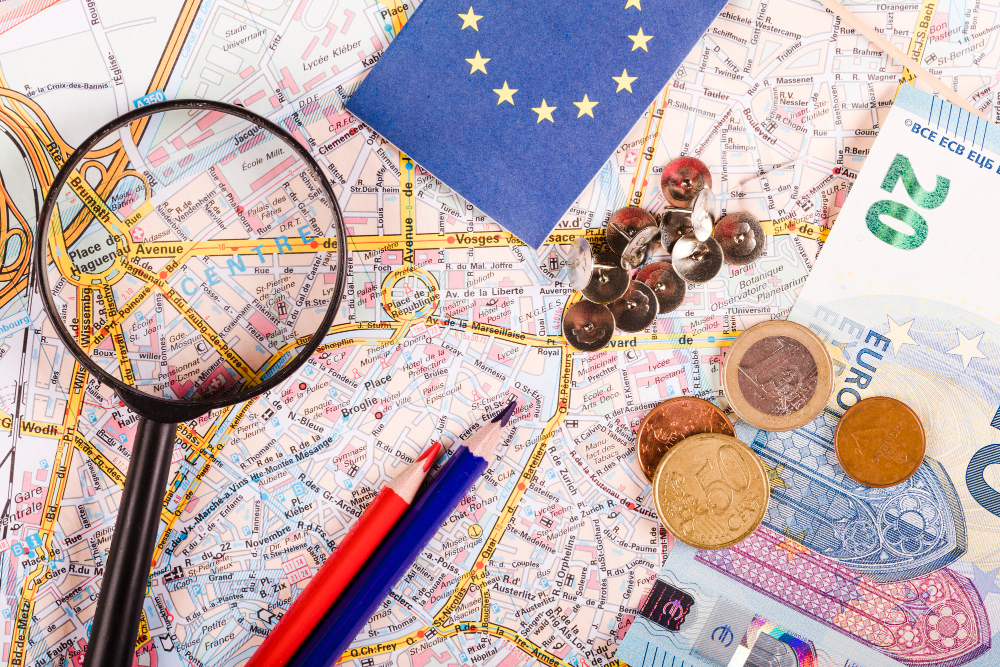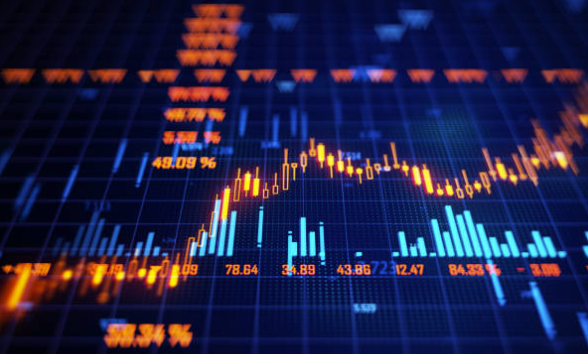How Geopolitical Events Influence Financial Markets
Financial markets are not just driven by economic data and corporate earnings—they are also deeply influenced by geopolitical events. From elections and trade wars to military conflicts and natural disasters, geopolitical developments can send shockwaves through global markets, creating both risks and opportunities for traders and investors. In this article, we’ll explore how geopolitical events shape financial markets, the mechanisms behind their impact, and how you can navigate these turbulent waters to make informed decisions.
Why Geopolitical Events Matter in Trading
Geopolitical events are like earthquakes in the financial world—they can shake the foundations of markets, causing sudden and dramatic shifts in asset prices. These events often create uncertainty, which is the enemy of stability in financial markets. When investors are uncertain about the future, they tend to react emotionally, leading to increased volatility.
For example, the outbreak of a war can cause oil prices to spike, while a trade dispute between major economies can lead to a sell-off in global stock markets. Understanding how geopolitical events influence markets is crucial for traders and investors because it allows them to anticipate potential risks and opportunities.
Key Geopolitical Events That Move Markets
Let’s take a closer look at some of the most significant geopolitical events and how they impact financial markets.
Elections and Political Transitions
Elections are one of the most common geopolitical events that influence markets. The outcome of an election can lead to significant changes in economic policies, regulations, and government spending, all of which affect investor sentiment.
For example, when a pro-business candidate wins an election, stock markets often rally on expectations of favorable policies like tax cuts or deregulation. Conversely, if a candidate with populist or protectionist policies wins, markets may react negatively due to fears of trade restrictions or increased government intervention.
A recent example is the 2016 U.S. presidential election. When Donald Trump was elected, markets initially plunged due to uncertainty but later rallied as investors anticipated tax reforms and infrastructure spending.
Trade Wars and Tariffs
Trade wars and tariffs are another major source of market volatility. When countries impose tariffs on each other’s goods, it disrupts global trade flows, increases costs for businesses, and can lead to slower economic growth.
The U.S.-China trade war that began in 2018 is a prime example. As the two countries imposed tariffs on billions of dollars worth of goods, global stock markets experienced heightened volatility. Companies reliant on international trade, such as manufacturers and technology firms, saw their stock prices decline, while safe-haven assets like gold and government bonds rallied.
Trade wars also impact currency markets. For instance, during the U.S.-China trade war, the Chinese yuan weakened significantly against the U.S. dollar as investors feared the economic impact of the tariffs.
Military Conflicts and Wars
Military conflicts and wars are among the most disruptive geopolitical events. They create uncertainty, disrupt supply chains, and can lead to significant economic losses.
For example, the Russian invasion of Ukraine in 2022 sent shockwaves through global markets. Oil and gas prices surged due to fears of supply disruptions, while European stock markets plummeted. Safe-haven assets like gold and the U.S. dollar rallied as investors sought refuge from the uncertainty.
Wars also have a profound impact on commodity markets. For instance, conflicts in the Middle East often lead to spikes in oil prices, as the region is a major producer of crude oil.
Natural Disasters and Pandemics
While not strictly geopolitical, natural disasters and pandemics can have similar effects on financial markets. These events disrupt economic activity, strain government resources, and create uncertainty.
The COVID-19 pandemic is a recent example of how a global crisis can impact markets. In early 2020, stock markets around the world experienced one of the fastest crashes in history as lockdowns brought economic activity to a halt. At the same time, demand for safe-haven assets like gold and U.S. Treasuries surged.
Natural disasters, such as hurricanes or earthquakes, can also impact markets, particularly in regions heavily reliant on agriculture or tourism. For example, a hurricane in the Gulf of Mexico can disrupt oil production, leading to higher oil prices.
Shape
Central Bank Policies and Geopolitics
Central banks play a crucial role in shaping financial markets, and their policies are often influenced by geopolitical events. For example, during times of geopolitical uncertainty, central banks may cut interest rates or implement quantitative easing to stabilize the economy.
The European Central Bank’s response to the Eurozone debt crisis is a case in point. As countries like Greece and Italy faced financial turmoil, the ECB implemented aggressive monetary policies to prevent a collapse of the euro and stabilize financial markets.
Similarly, the U.S. Federal Reserve’s response to the COVID-19 pandemic, including slashing interest rates to near zero and launching massive stimulus programs, helped prevent a deeper economic downturn and supported a recovery in stock markets.
How to Navigate Geopolitical Risks in Trading
Navigating geopolitical risks requires a combination of preparation, flexibility, and a clear understanding of market dynamics. Here are some strategies to help you manage these risks:
Stay Informed
Keep up with global news and developments to anticipate potential market-moving events. Reliable sources like Bloomberg, Reuters, and Financial Times can help you stay ahead of the curve.
Diversify Your Portfolio
Diversification is one of the most effective ways to manage geopolitical risks. By spreading your investments across different asset classes, sectors, and regions, you can reduce the impact of any single event on your portfolio.
Use Safe-Haven Assets
Safe-haven assets like gold, U.S. Treasuries, and the Swiss franc tend to perform well during times of uncertainty. Including these assets in your portfolio can help protect your wealth during turbulent times.
Monitor Market Sentiment
Pay attention to market sentiment indicators, such as the VIX (Volatility Index), to gauge the level of fear or optimism in the markets. This can help you make more informed trading decisions.
Have a Risk Management Plan
Always have a risk management plan in place, including stop-loss orders and position sizing. This will help you limit potential losses and protect your capital.
Final Thoughts
Geopolitical events are an inevitable part of the financial landscape, and their impact on markets can be profound. By understanding how these events influence different asset classes and having a clear strategy to navigate them, you can turn potential risks into opportunities.
Remember, the key to successful trading during times of geopolitical uncertainty is preparation, flexibility, and a disciplined approach to risk management. Stay informed, stay diversified, and always be ready to adapt to changing market conditions.
Ready to Take Your Trading to the Next Level?
If you’re serious about mastering the markets and navigating geopolitical risks, we recommend checking out Trendsignal. They offer an award-winning trading strategy with 1-to-1 coaching and live workshops designed to help you succeed.
Don’t miss their upcoming live webinar, where you’ll learn proven strategies from industry experts.
Click here to reserve your spot in the live webinar!
Disclaimer: Trading involves risk, and it’s important to only trade with money you can afford to lose. This article is for educational purposes only and does not constitute financial advice.





0 Comments